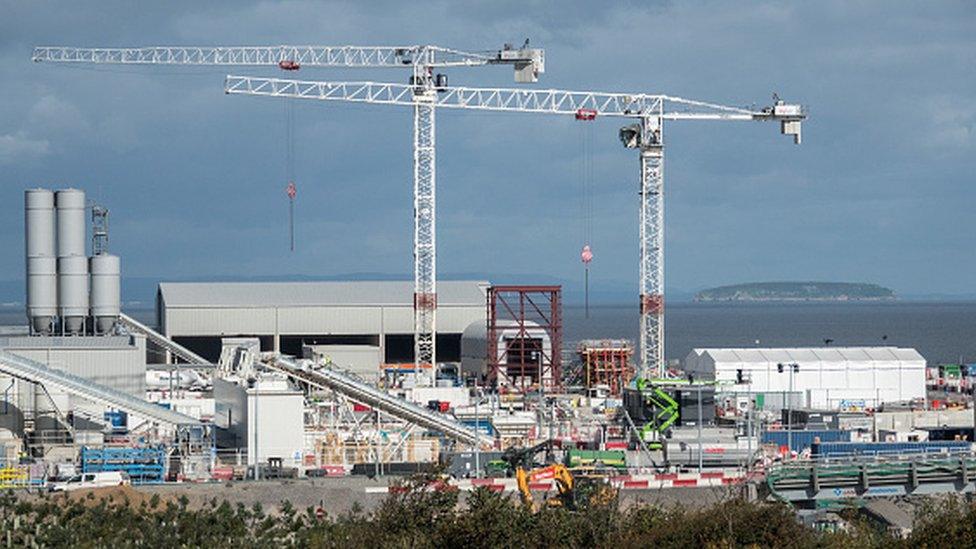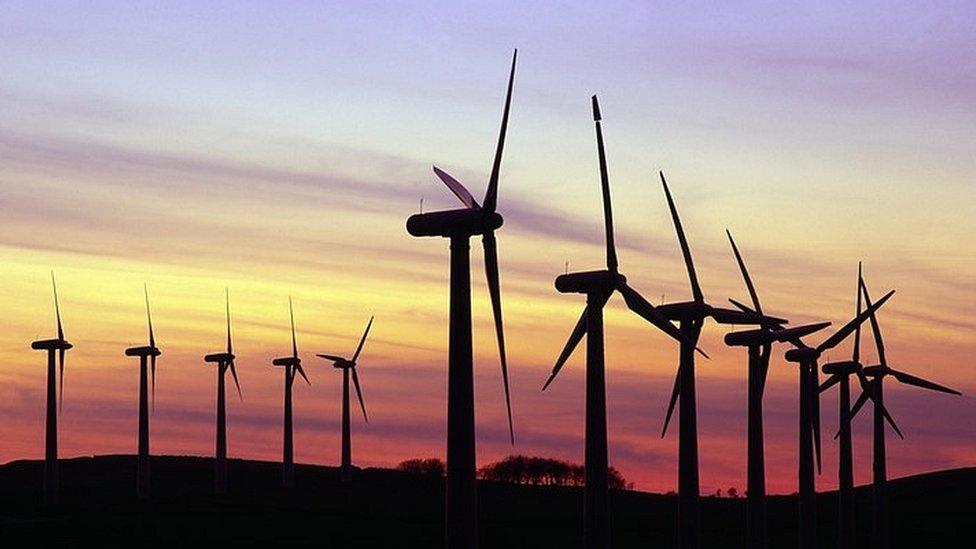Energy rationing not part of UK approach, minister says
- Published
Watch Grant Shapps firmly rule out energy rationing for the UK
The transport secretary has said energy will not be rationed in the UK, despite pressure on supplies globally.
Grant Shapps ruled this out after Labour's shadow business secretary suggested ministers might need to prepare for rationing.
Some European countries have moved towards rationing as energy costs rise and supplies tighten.
Mr Shapps told the BBC the energy strategy would be announced later this week.
Plans to expand nuclear and wind power are expected to form part of the strategy, which has been delayed amid cost concerns.
When pressed on whether he can completely rule out energy rationing, he told the BBC's Sunday Morning programme: "Yes, I can. It's not the route that we want to go down."
He was responding to Labour's shadow business secretary Jonathan Reynolds who told the programme: "The government should be preparing, not necessarily in public for that situation."
But Mr Reynolds later told Times Radio the UK should be not be rationing energy right now.
Wind power debate
As Mr Shapps ruled out rationing, he said wind farms were an "immense invisible national resource" that could be exploited more and that it was better to build significant wind power offshore.
While he said there may be occasions where onshore wind farms made sense, he added: "I don't think we want to cover every inch of land in onshore wind farms."
In turn offshore wind "performs better because it tends to be windier" and can be built "much, much bigger", he said.

The government is looking to increase the amount of energy generated by nuclear power
He made the comments after he told Sky News that he did not favour "a vast increase in onshore wind farms", calling them an "eyesore for communities".
Sources have told the BBC onshore wind will feature in the government's energy strategy, despite some opposition within the cabinet.

Cabinet split on wind

Onshore wind has long been a topic that has divided the Conservative Party.
Former Prime Minister David Cameron said in 2014 people were "fed up" with seeing them being built, and some Conservative activists have criticised their visual impact on the landscape.
Planning laws were then tightened in England to make them much harder to build. But recent polls have suggested a majority of the public support onshore wind.
Cabinet ministers are split over whether to review those planning rules in England. They have been clear onshore wind, and solar farms, need local consent and should be accompanied by "community benefits".
I understand those community benefits are being considered, regardless of whether rules are relaxed in England or not. If that happened, Scotland and Wales could - in theory - feel the benefit more proportionally.
This energy strategy won't be an instant fix to high energy bills. Nuclear power stations, for example, can take years and be very expensive to build.
Meanwhile, as the cost of living rises, some Tory MPs are calling for the government to pause its net zero plans. But the government argues that moving towards more renewables is the answer to high bills - not the problem.

The BBC previously reported that cabinet ministers were split over the idea of relaxing planning laws in England to enable more onshore wind farms - an idea backed by Business Secretary, Kwasi Kwarteng.
In an interview with the Sunday Telegraph, external, Mr Kwarteng said there has to be "community consent" for onshore wind and fracking, a controversial method of mining for shale gas.
The BBC has reported one option ministers were considering was lowering energy bills for people near wind turbines.
He confirmed that ministers have agreed to set up a new body to oversee delivery of new nuclear plants.
The prime minister has previously said he wants 25% of UK energy generated by nuclear by 2050, but the Treasury has raised concerns about some of the costs of these targets.
Meanwhile, a move away from the use of Russian oil and gas is expected to be addressed in the government's energy strategy, which will also outline plans to hit net-zero emissions targets.
The UK government has already said it will phase out imports of Russian oil by the end of the year.
Russian imports account for 8% of total UK oil demand and 5% of gas supplies and the government is attempting to shore up energy security in the UK following a spike in oil and gas prices since the start of the Ukraine war.
A £700-a-year rise in energy costs has put pressure on household budgets in the UK, at a time when other hikes to bills are taking effect.
- Published3 April 2022

- Published1 April 2022

